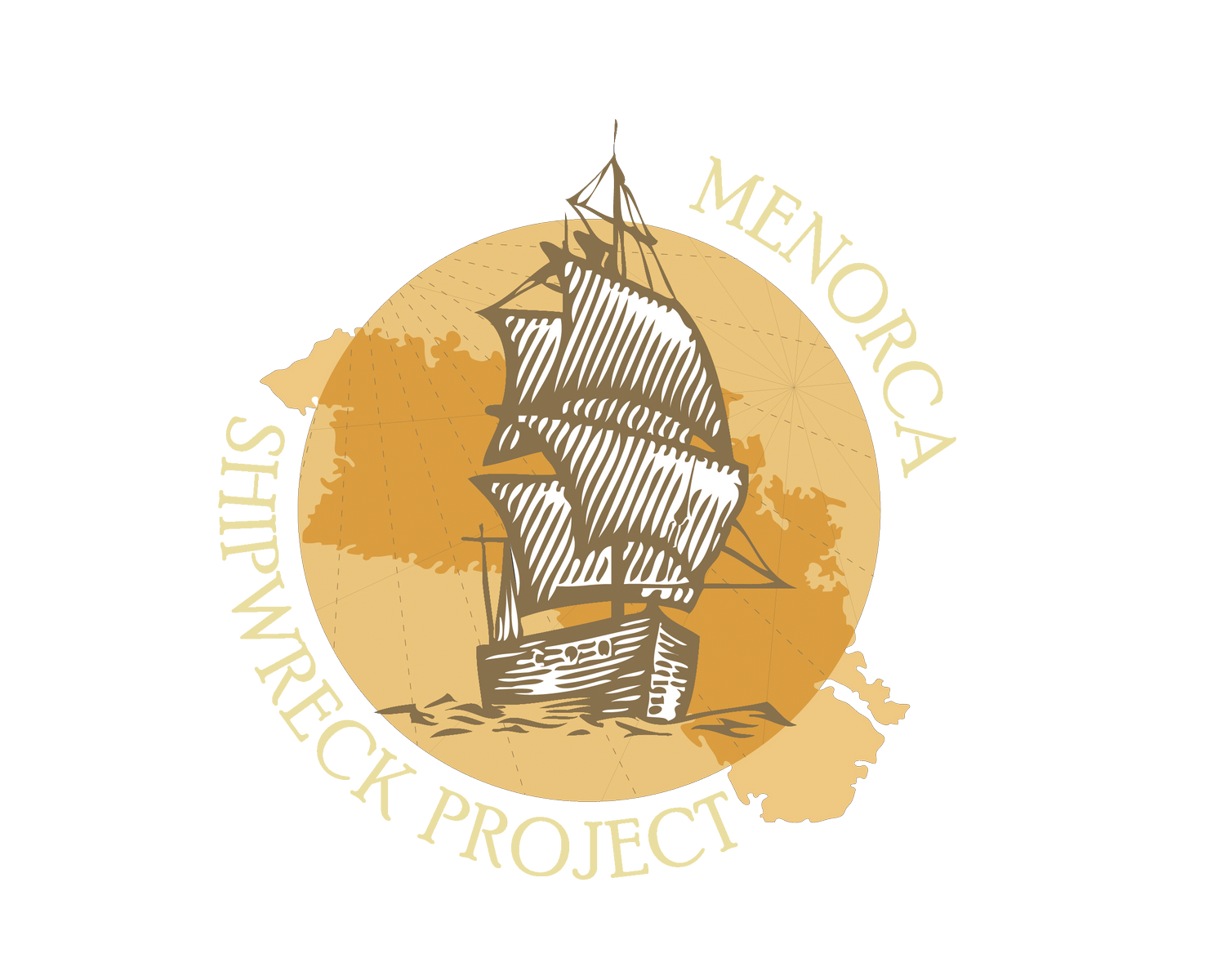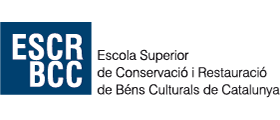Uncovering Sunken History
The Menorca Shipwreck Project is an multi-year archaeological expedition that began in the fall of 2023. It is a collaboration between Explorers Club Members, Menorcan and Catalonian archaeologists, local museum staff and cultural heritage professionals. The MSP hosts a field school each year where participants learn the basics of underwater archaeology, improve their scuba diving skills, and learn about the rich multilayered history of Menorca that dates back millennia.
2026 Field School Applications live now
Applicants of all backgrounds and dive levels are encouraged to apply. New divers may apply but will need to complete at least their Open Water level before arriving. Selections will be made on a basis of fit for the program, team makeup, and curiosity. Sessions will be confirmed once all spots are filled. Please indicate which session works best for your schedule, though you may be directed on a particular group based on experience and the limited spaces available. Exact dates may shift slightly but will be confirmed late summer 2026. Decisions are made on a rolling basis.
Choose one session.
Field School Session 1: September 27th - October 10th
Field School Session 2: October 12th - October 25th
Field School Session 3: October 27th - November 11th (Return Participants Only)
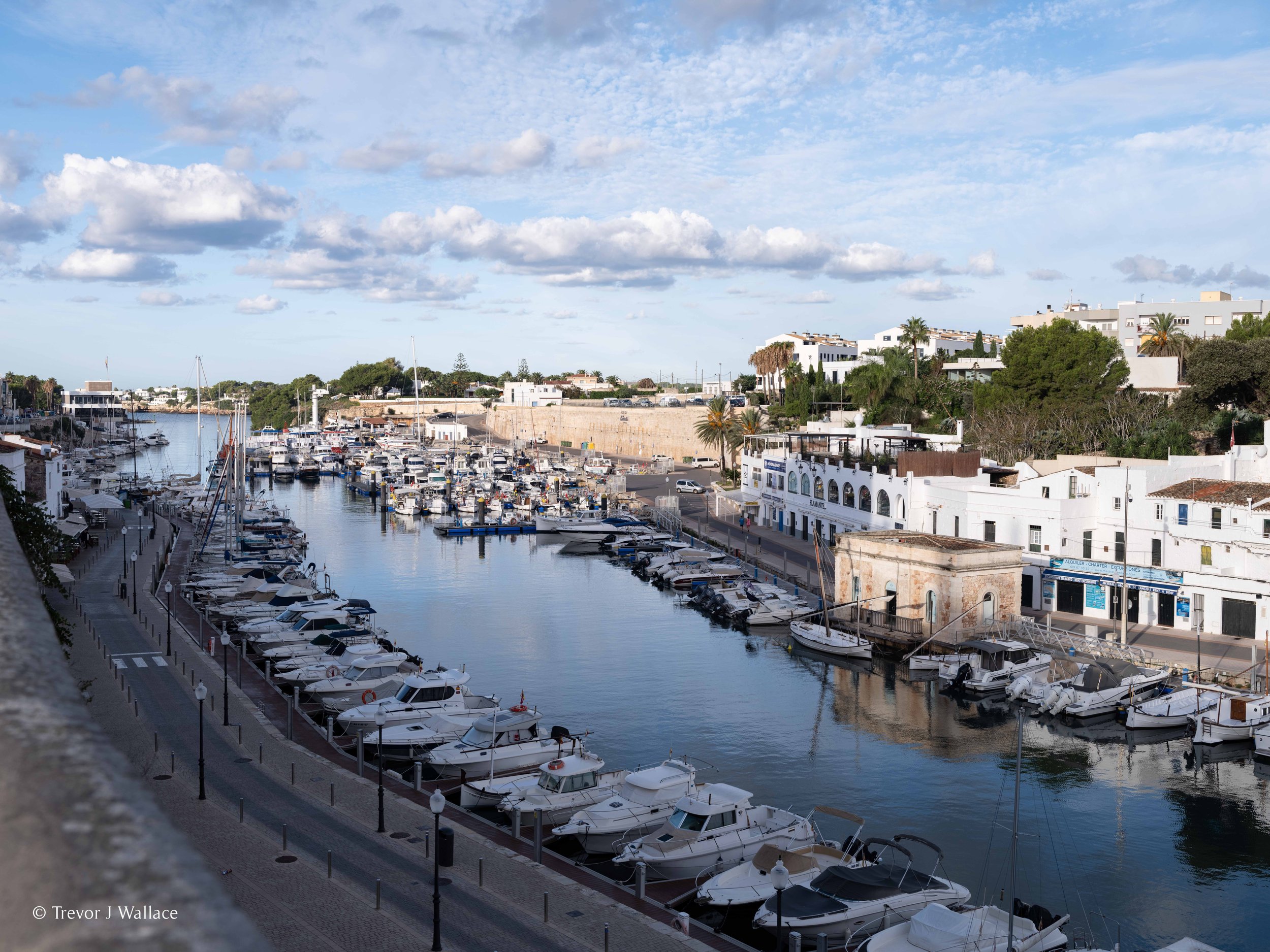
Site Location
Menorca is the easternmost of the Ballearic Islands, on the crossroads of the Mediterranean, an ancient trading hub and modern day travel destination. The Port of Ciutadella is a small harbor on the western side of the island which still serves the local community as well as visiting yachts. Over the past decade, small discoveries during harbor maintenance have led to the designation of the entire port as an underwater archaeological site. At a depth of roughly 5 meters (16 feet), the port area has been described by archaeologists as an ‘underwater museum’ with dozens of wrecks spanning from Roman times through medieval and modern day. The reason for the concentration of wrecks in the protected port is because of an environmental phenomenon called rissagas or meteotsunamis, which are erratic shifts in tide and wind that have suddenly grounded and sank ships and boats for thousands of years.
Project Goals
Within the Port of Ciutadella the area the team will be focusing on is a small cove called ‘Cala en Busquets.’ In preliminary surveys of this area, a Roman Shipwreck was discovered with 20 amphorae in the style of the Baetica Region (1st Century CE, South of Spain), a medieval shipwreck (13-1400s), and an 18th century shipwreck. There are two theories about the 18th century shipwreck, given the archaeological name ‘Busquets 1,’ based on the survey data. The hull appears to be a Pinque or Pink Vessel commonly used for maritime trade. The first theory is that the wreck dates to a period in Spanish history when the crown was actively fighting wars of independence in the New World in the late 1700s. The presence of musket balls could indicate that this ship was bound for the New World for armament resupply when it sunk. The competing theory is that it is a Genovese merchant ship from the early 1700s that was transporting cotton. The team has uncovered material from a wide range of time periods but has focused the work on the top layer of the 18th century shipwreck. Field School expedition members will learn the basics of both these aspects in a series of workshops and technical labs throughout the expedition. In the 2024 season and beyond MSP aims to excavate the other wrecks in the cove and older significant sites around Menorca and the Mediterranean.
Field School Overview
-
Expedition & Field School
During the expedition the goals of each dive will depend on the stage of the excavation and the conditions. Excavation dives will be in the morning, with a team debrief in the afternoon and talks hosted by the field school facilitators in the evening. Topics will vary from the basics of underwater archaeological methodology to 3D photogrammetry to restoration. Most sessions will be held at the Can Saura Museum in Ciutadella.

-
Day to Day
Participants will have free time to wander in Ciutadella and discover the cultural and culinary richness of the island. In the event of bad weather the team will organize a Plan B, that will include exploratory survey dives, private tours of archaeological sites around the island, fun dives, and museum visits. At the end of the expedition participants will receive a certificate signed by our partners.

-
Hands on Experience
What makes this field school special is that you will be actively excavating an important site. With the careful guidance and training of experts you will uncover history first hand. While many specialty courses might cover survey, measuring, or theory of archaeology, here you are part of our team helping write the story of the island. Participants are actively learning day by day but also integrated as part of the team.


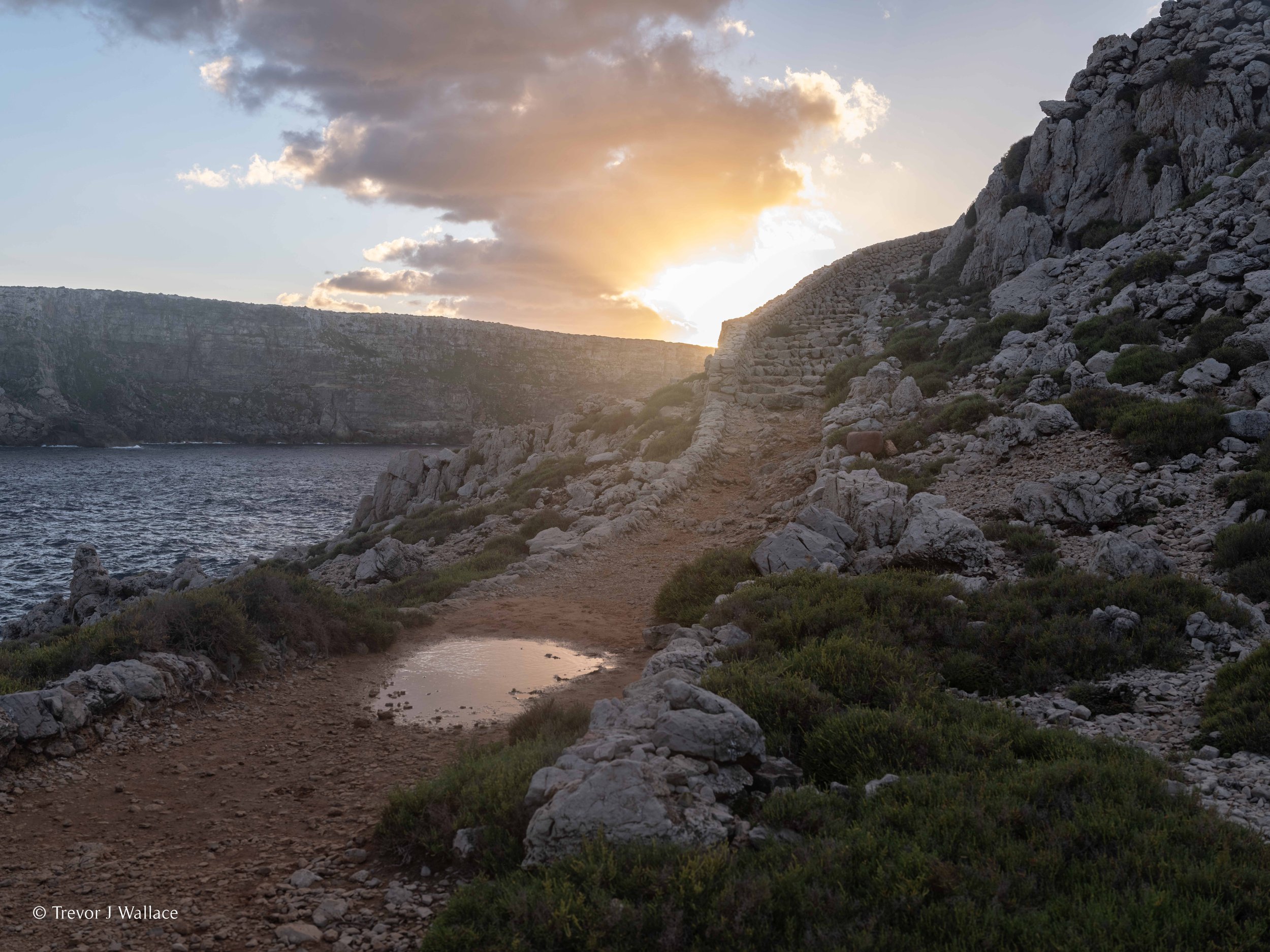
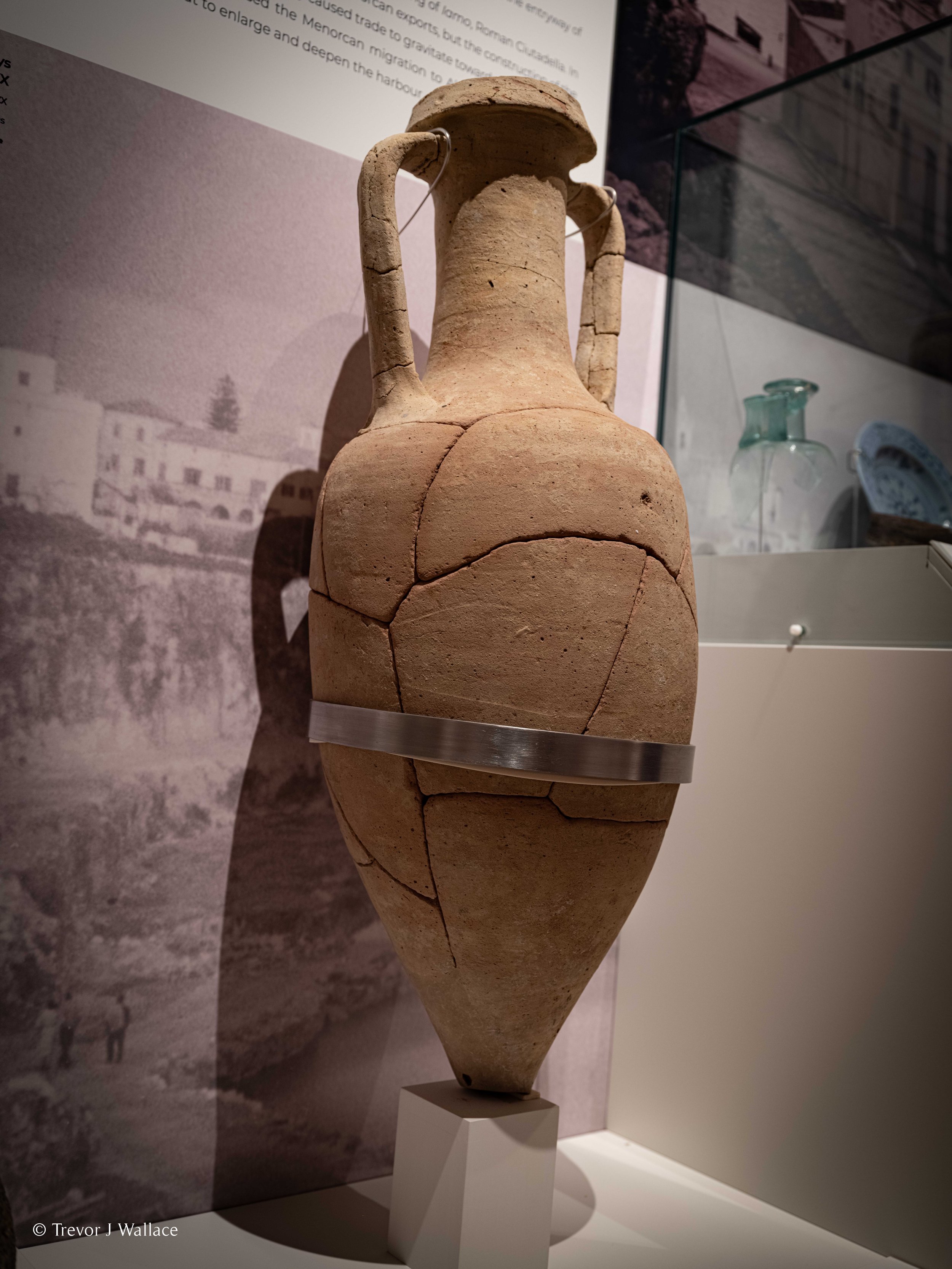
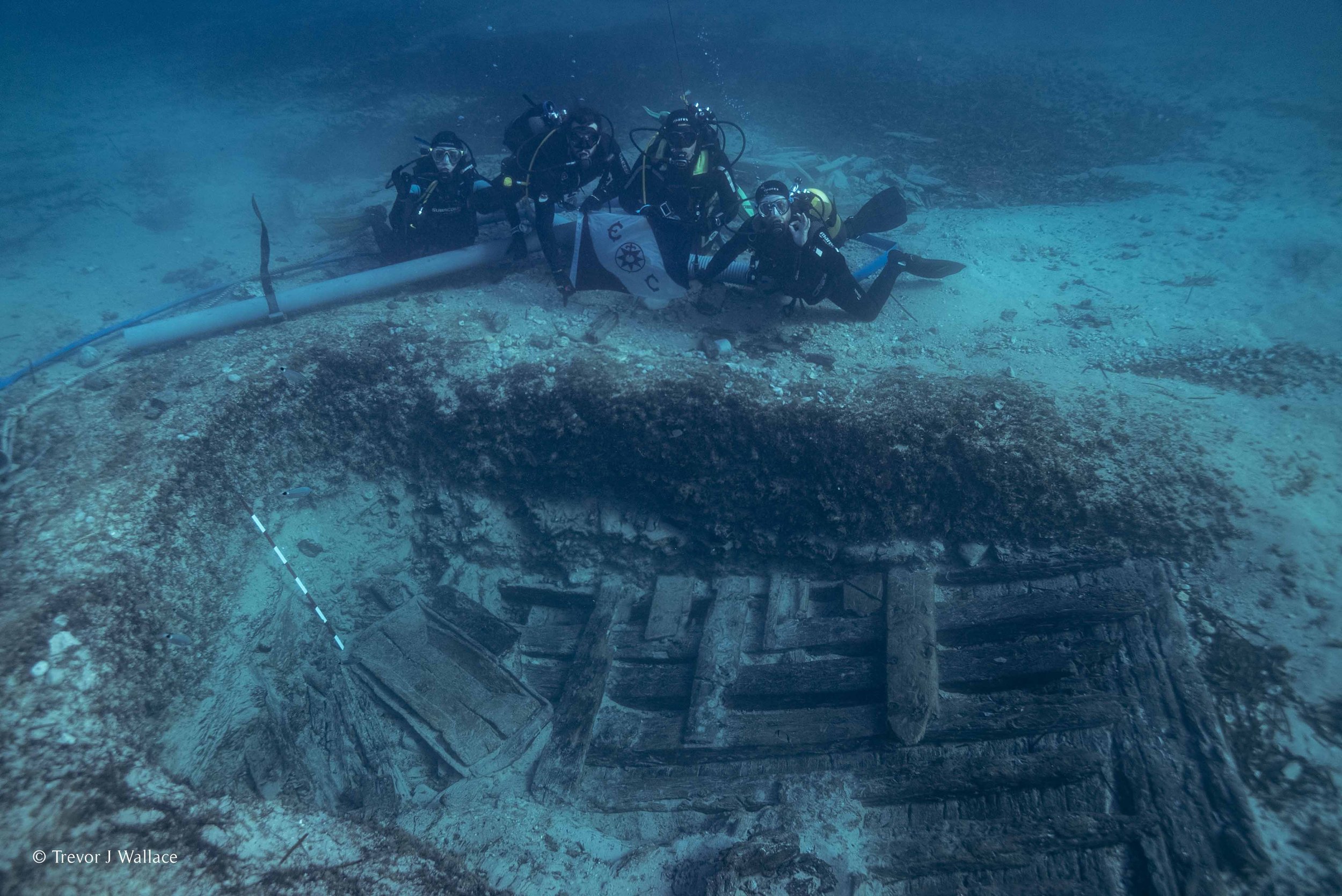
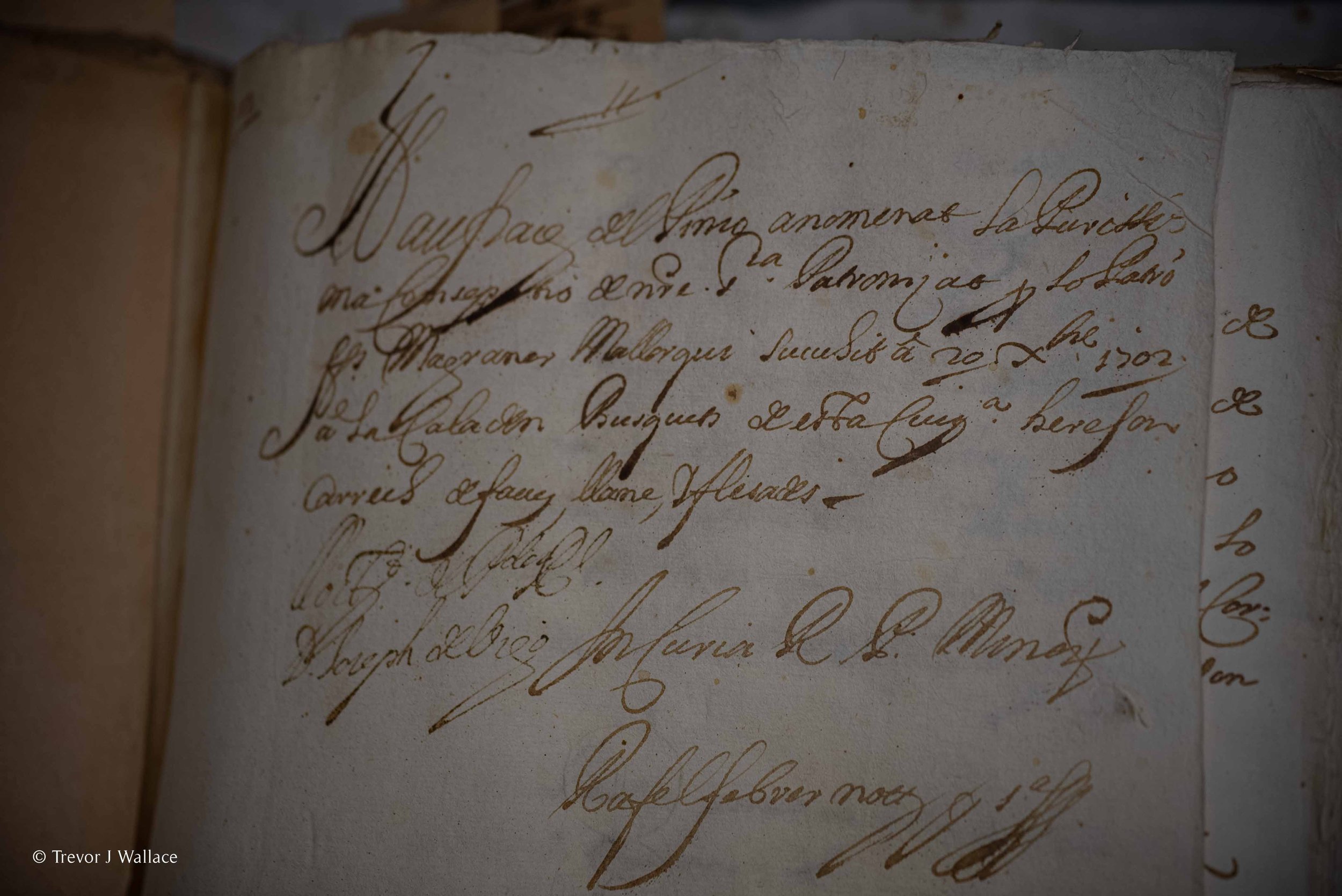
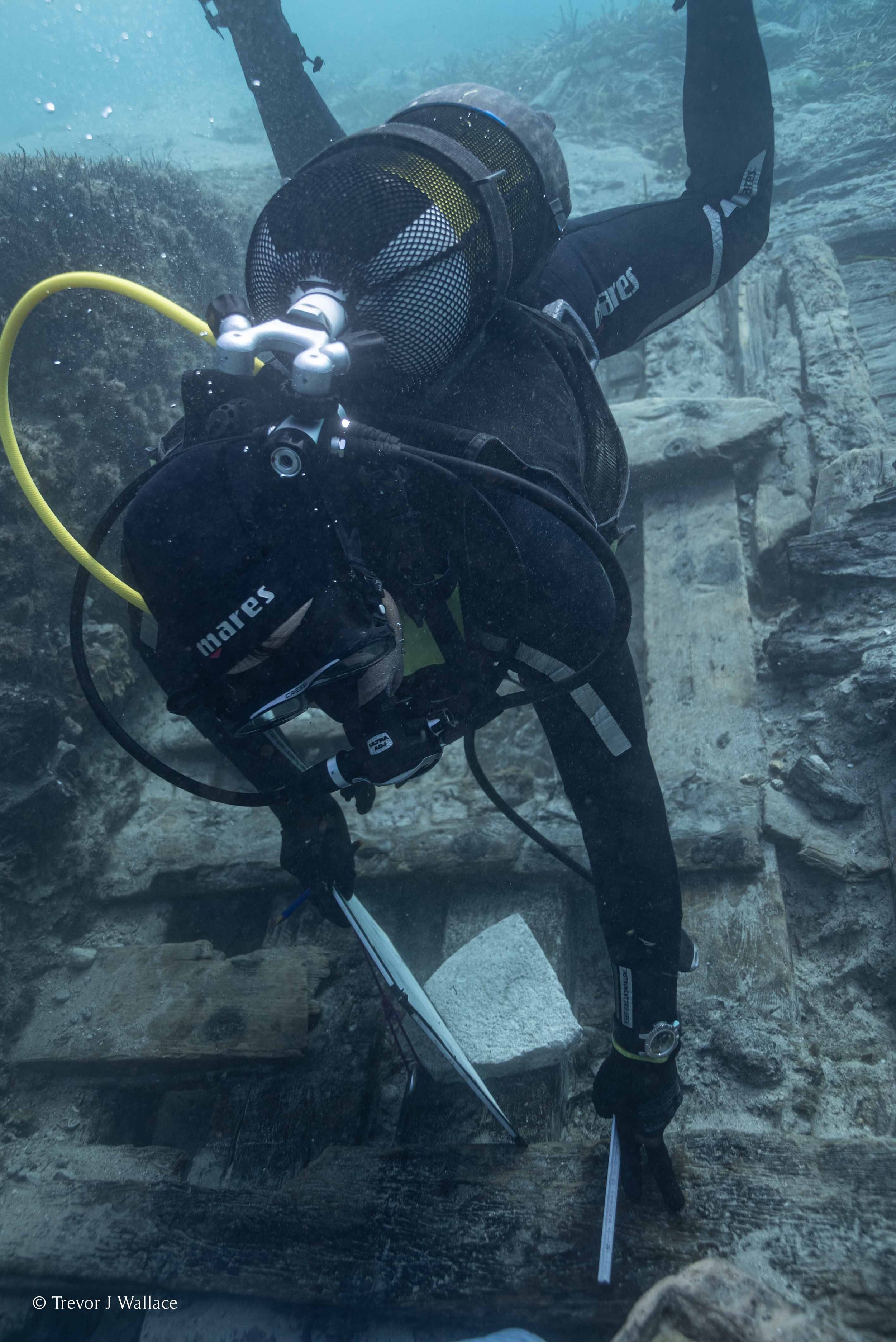

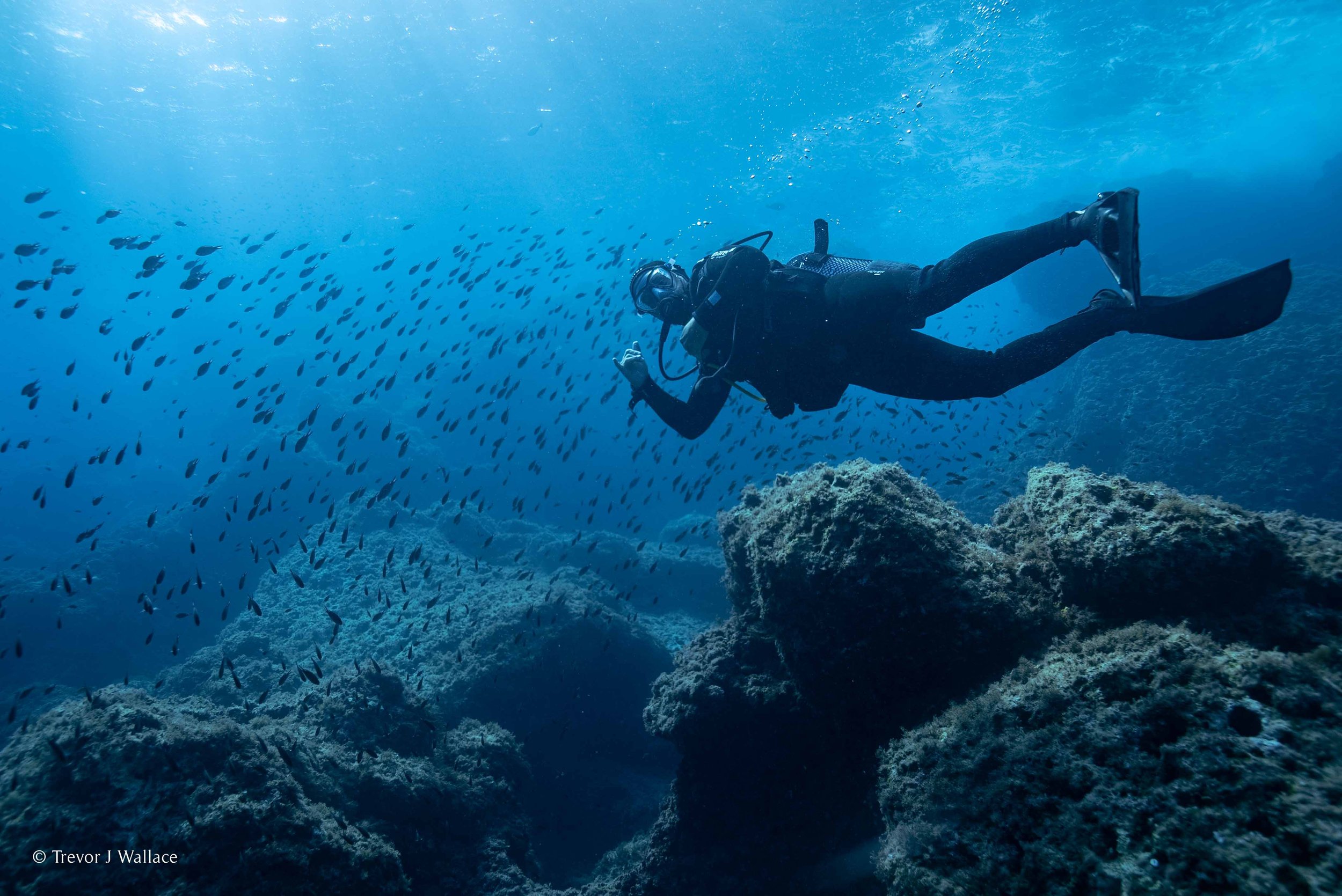

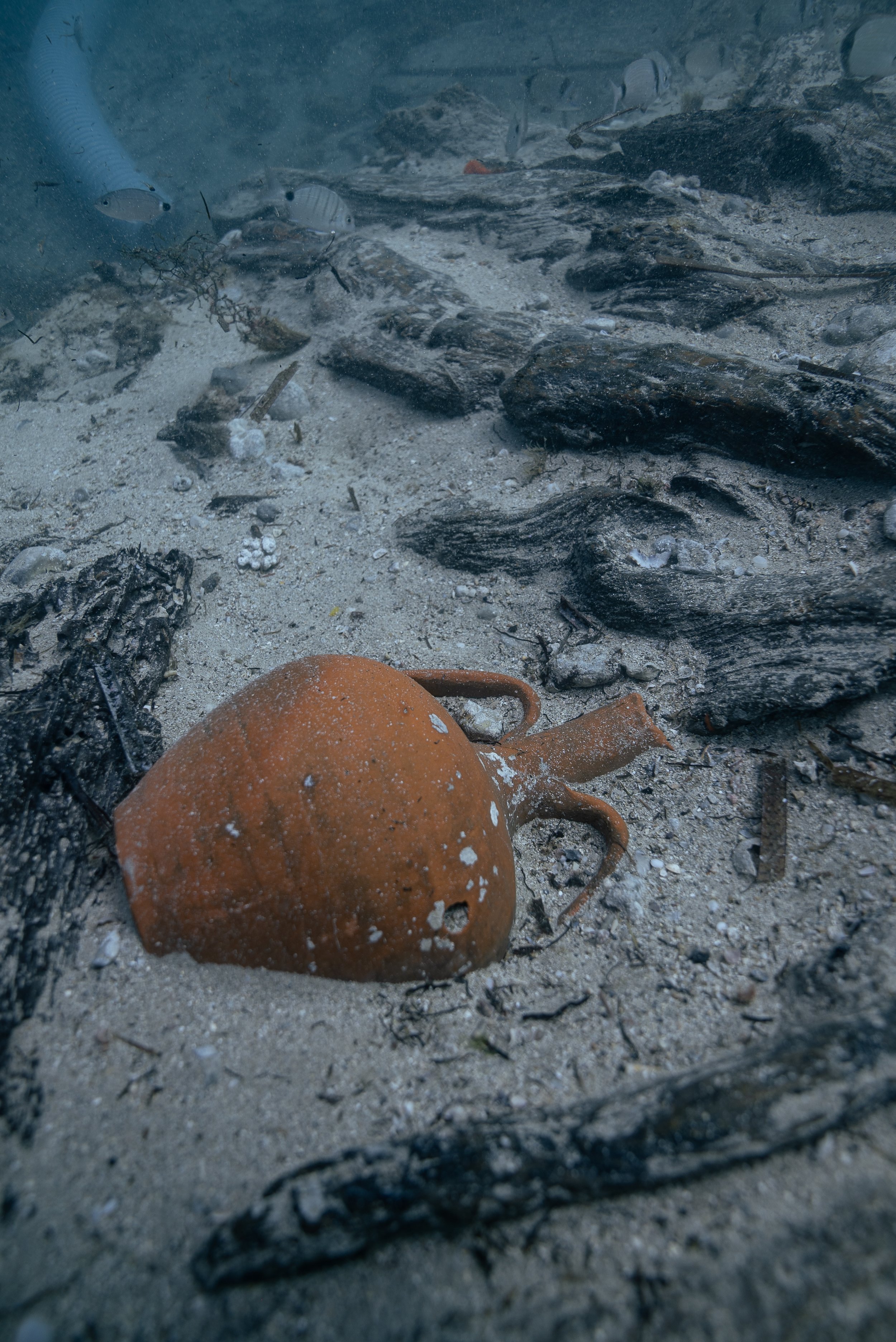
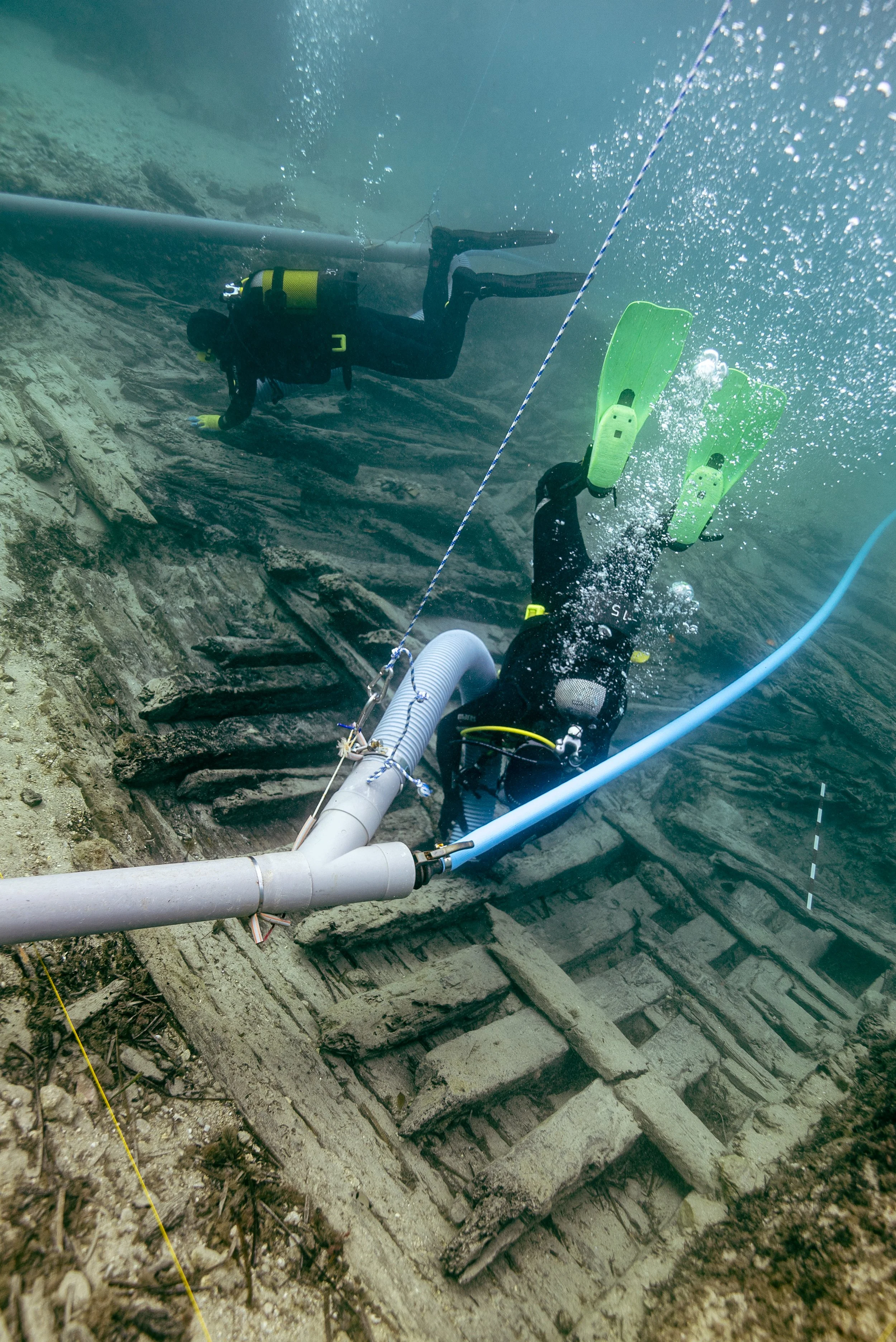
Meet the Team
-

Trevor Wallace
Expedition / Field School Leader
Trevor is a filmmaker and explorer, and has been the Vice President of Research and Education at The Explorers Club since 2019. He has participated in 5 flag expeditions in Siberia, India, and Panama. He has had his work featured by National Geographic, CNN, and Discovery Channel.
-
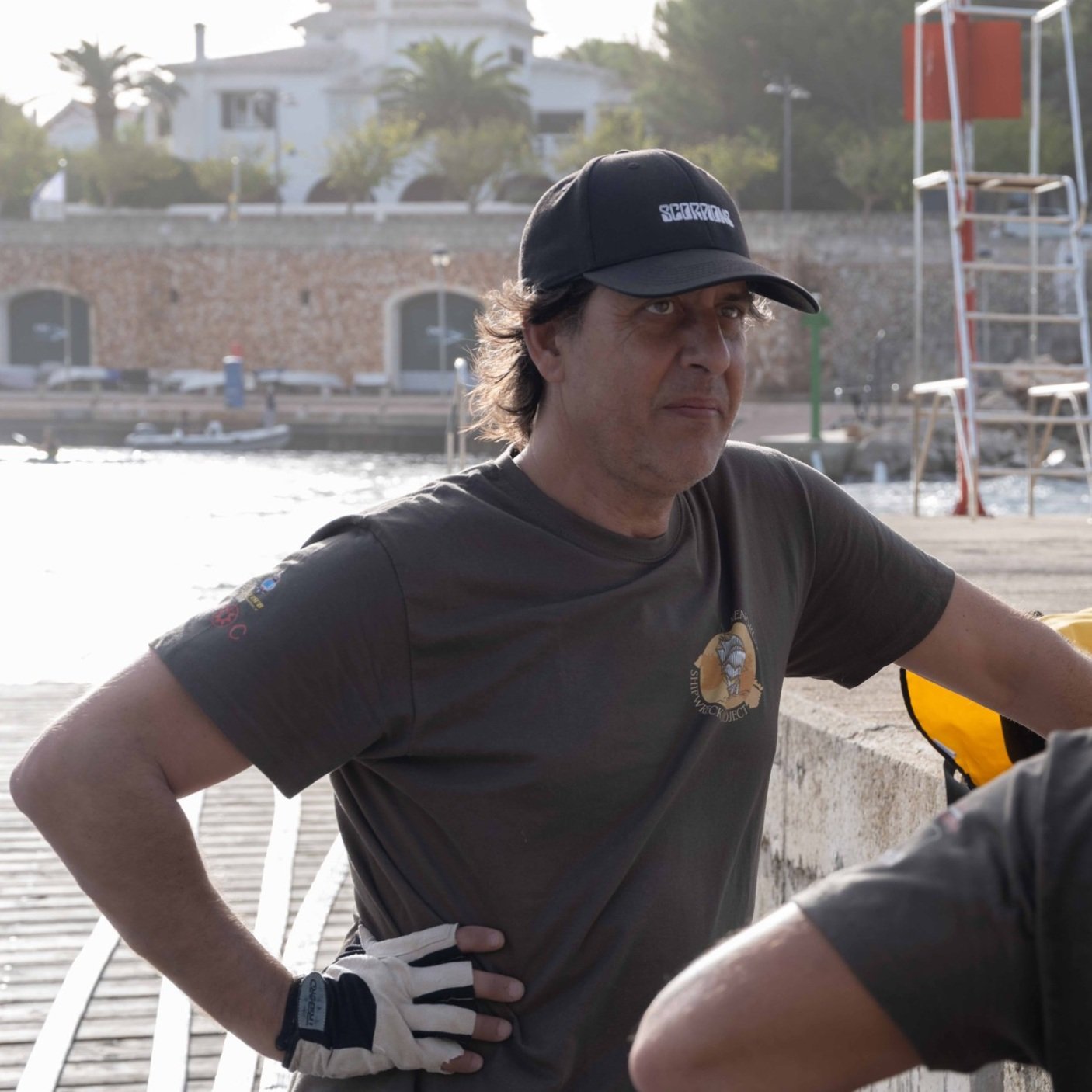
Xavier Aguelo
Science Lead / Metal Specialist
Xavier has twenty-five years of experience in diving, surveying and excavating in the Balearic Islands. Xavier has collaborated with the Museum of Menorca, the Center for Underwater Archeology of Catalonia (CASC) and co-directed the underwater excavations of the Binissafúller and Calescoves wrecks.
-
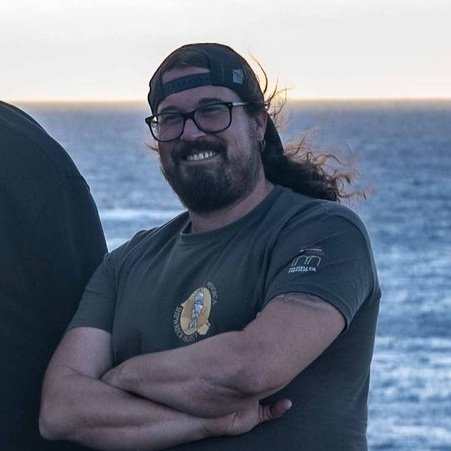
Bruno Parés
Tech Lead
Bruno has a degree in Geography and History from the University of Barcelona (UB) and is a terrestrial and underwater archaeologist specializing in 3D documentation and heritage visualization.
-
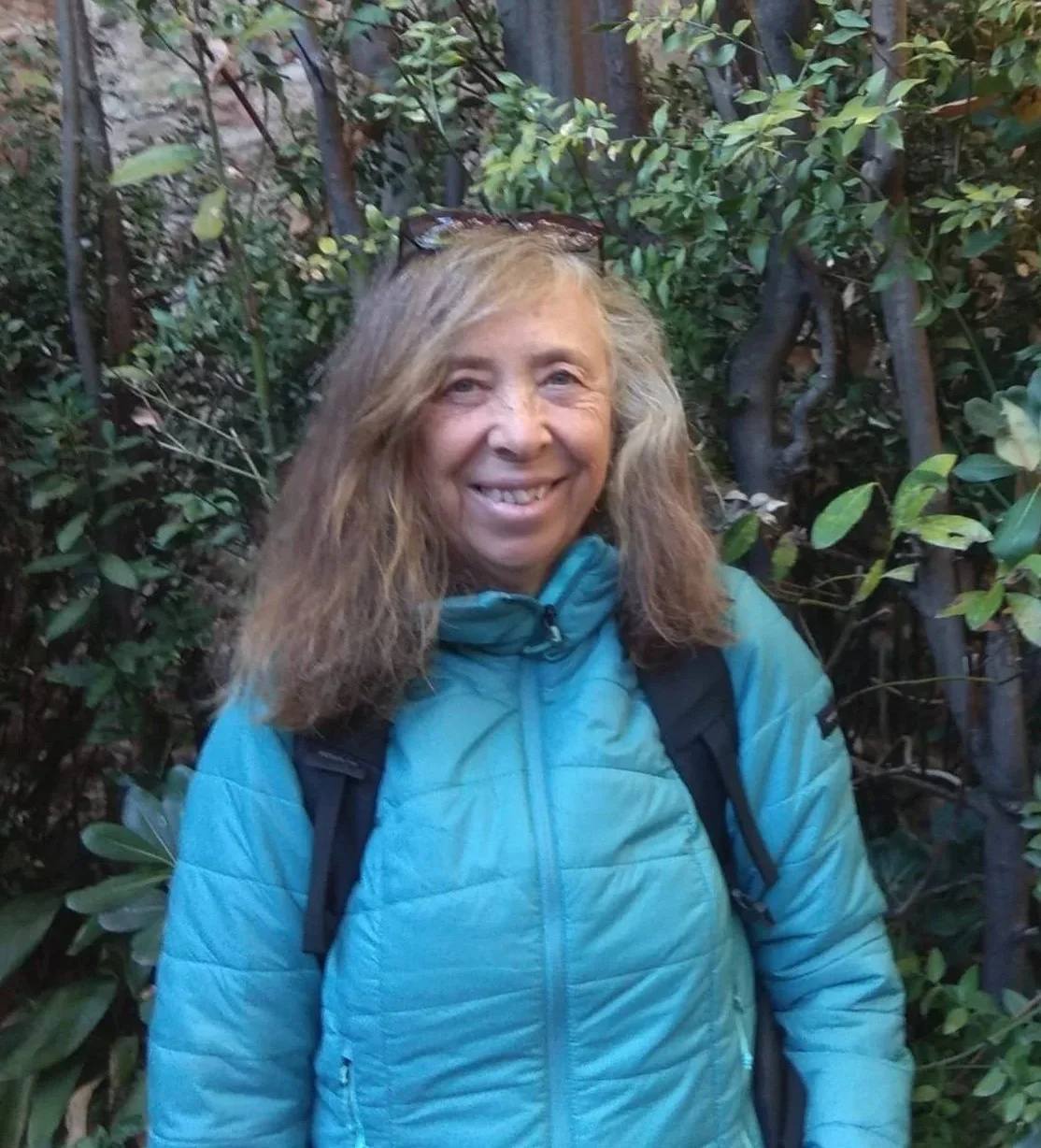
Mariona Alsina-Batchelli
Archaeologist & Field School Coordinator
Mariona holds four master’s degrees from the Autonomous University of Barcelona: History; Nautical Underwater Archaeology; Interpretation and Translation (English, German, and Arabic); and Foreign Language Teaching. She has worked as a language teacher, translator, and PADI Open Water diving instructor, and now serves as an official tour guide. Mariona has collaborated on numerous underwater archaeology campaigns in Catalonia and Menorca. She loves sharing the island’s history and landscapes—on land and under the sea—and is committed to making every visitor’s stay richer and more meaningful.
-

Octavi Pons
Pottery Specialist
Octavi has a Degree in Geography and History from the University of Barcelona (UB). Since 1996 he has coordinated the work for the elaboration of the underwater archaeological chart of Menorca. He is a staff archaeologist at the Museum of Menorca.
-

Dr. Marcel Pujol
Naval Architecture Specialist
PhD in History from the Autonomous University of Barcelona, DEA in Medieval Archeology from the University of Paris I-La Sorbonne. Since 1983, he has participated in archaeological excavations, both on land and underwater in Menorca. Since 1994 he has been professor of Nautical and Underwater Archeology at the University of Barcelona and is currently at the University of Cadis.
-

Maria José León
Archaeologist / Museum Director
A graduate in History from the University of Barcelona with a specialization in prehistory and a master's degree in Heritage Management from the Universitat Oberta de Catalunya. Currently, she works as a municipal archaeologist at the Ciutadella City Council and is responsible for the technical management of the Ciutadella Museum, where she also conducts outreach and dissemination work on heritage. She has participated in numerous excavations both on and off the island, and additionally, she is the co-director of the "Entre Illes" project, at the Coll de Cala Morell.
-

Gennady Peretz
Archaeologist / Dive Instructor
Gena is an archaeologist with over 20 field excavations around the world in Russia, Israel, and India. He is a certified dive instructor with thousands of dives and is a talented musician.
-

Dr. Gino Caspari
Archaeologist
Dr. Gino Caspari is a Swiss archaeologist and explorer, with a background in remote sensing, science communication, and large international collaborations. He is a Fellow of the Explorers Club, a Fulbright alumnus, and Columbia University graduate who focuses on the discovery and analysis of ancient landscapes, graves, and ruins.
-

Marc Langevin
PADI Exploration Diver: Archaeology, Distinctive Specialty Instructor/ Dive Site Safety Lead
Retired USMC Colonel who owns his own International Law Enforcement and Military training (Maritime and Border Security, Intelligence, Counternarcotics and Counterterrorism) company working for US DoJ, DoS and DoD globally. A military Special Operations Combatant Diver, IANTD TRIMIX Technical and Rebreather diver and PADI IDC Staff Instructor with over 20 teaching certifications including Master Scuba Diver Trainer, Public Safety Diver Instructor, DAN Oxygen and First Aid Instructor. Marc is a Fellow National of The Explorers Club.
-

Dr. Carlos Velasco
Archaeologist/ Ceramics Specialist
Carlos is a Phd in Prehistoric Archeology working for 20 years on the Ancient Bronze Age and the Origins of Complex Societies in the Western Mediterranean. He is a term member of the The Explorers Club, Professional Shallow Diver (Generalitat de Catalunya) and Dive Master (PADI).
-

David Mearns
Field School Lecturer / Project Advisor
David L. Mearns OAM, MSc, is a chartered marine scientist, historical researcher, author, and expedition leader of deep ocean projects. He is one of the world’s most experienced and successful deep-sea shipwreck hunters, having located 24 major shipwrecks with an overall success rate of 89%. His formidable reputation has been built on a career finding notoriously difficult wrecks that others predicted would never be found or their mysteries solved. David’s most important discoveries include MV Lucona, MV Derbyshire, HMS Hood, the Portuguese East Indiaman Esmeralda , HMAS Sydney, HSK Kormoran, AHS Centaur, and Rio Grande, the Guinness World Record for the deepest shipwreck ever found at 5,762 metres. David was also a key member of Paul Allen’s team that located and filmed the iconic Japanese battleship Musashi in 2015, based on the research and search area analysis he conducted.
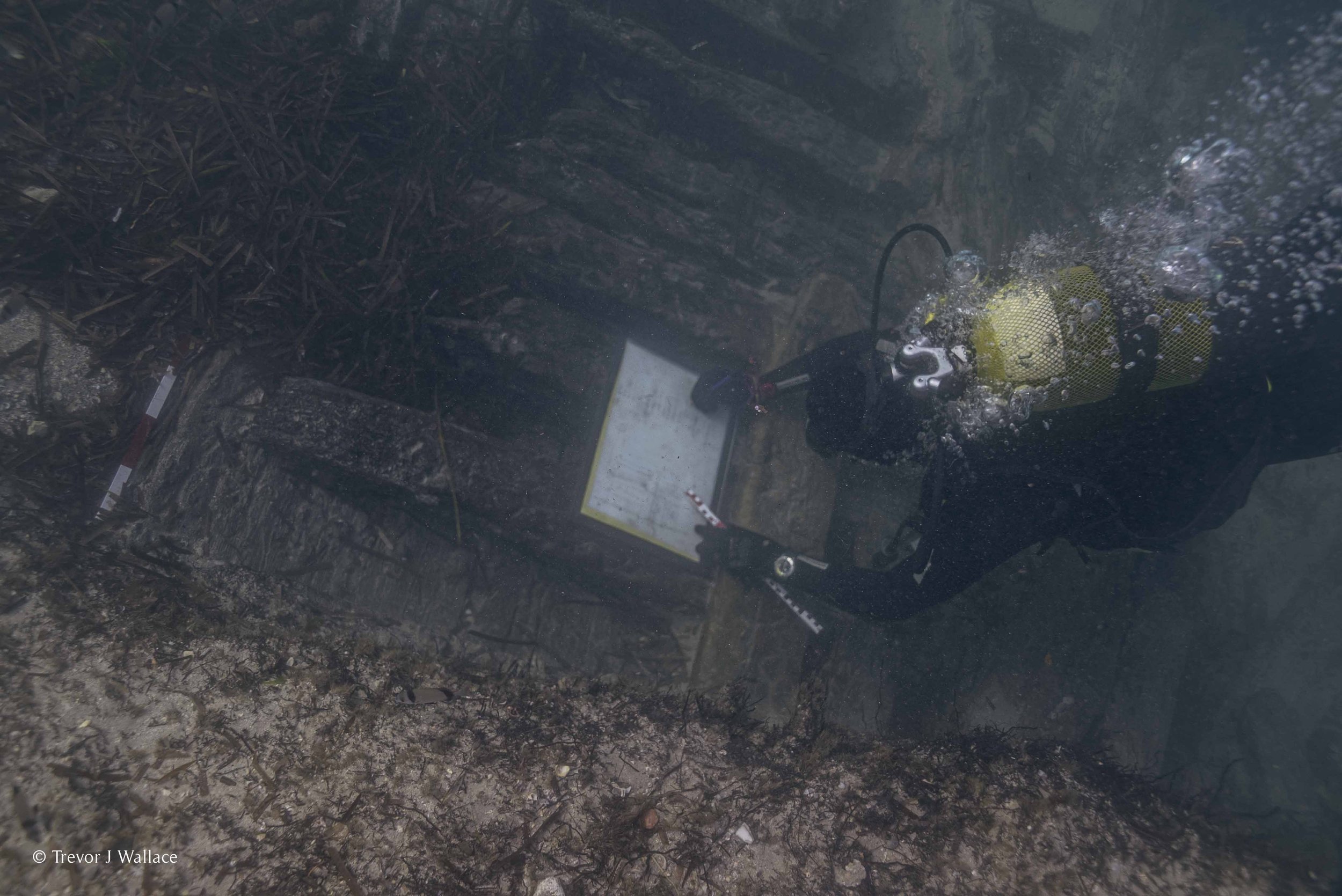
Participant testimonials
“The Menorca Shipwreck Project team makes learning and using underwater archeology an absolute joy!”
J. Overholt
“The Menorca Shipwreck Project opened up a new world of underwater archeology for me. What I appreciated the most was the camaraderie, friendliness, patience and overall kindness of our hosts and expedition organizers, who took the time to teach us about their passionate work, the sites, Ciutadella and Menorca in general, and offered purpose to diving and visiting this gem of an island. We were united under The Explorers Club flag and quickly made friends and found many things in common. Truly an unforgettable and unique experience. Muchas Gracias, Merci, Thank You!”
E. Babau
“The opportunity to uncover a shipwreck and various other artifacts— to be one of the first people to see and touch these objects, some of which are over a thousand years old— is a deeply moving, incredibly unique once in a lifetime experience”
J. Rousher
Activities on Menorca
-
UNESCO World Heritage Sites

-
Local Cuisine

-
Rock Climbing

-
Kayaking the Coast

-
Wreck Dives

-
Museum and Historic Site Visits

Partners
The TEL Podcast
Recorded during the 2024 field campaign this podcast interview with Expedition Leader Trevor Wallace gives background information on the site, the fieldschool, and their progress during the campgaign.
Contact Us
Email
menorcashipwreckproject@gmail.com
FAQs
-
The field school tuition is 7,500 USD. The field school tuition helps fund the expedition costs, salaries of specialists and expedition team. Administrative costs for permits, archival research, travel and logistics planning Lectures, curricula, and materials for course. Exclusive museums visits/tours. Tanks for expedition dives. Please reach out for more detailed information on what tuition does and does not cover.
-
Through the generous support of our sponsors and donors we are proud to offer the ‘Sunken History Scholar’ Program to support up and coming underwater archaeologists and young people interested in underwater cultural heritage. Please navigate to the scholarship tab for more information and how to apply.
-
No previous archaeology experience necessary, but participants are chosen based on their motivations and desire to learn. While new divers are welcome it is required to complete an Open Water course (e-learning and dives) prior to the expedition. Our team can assist in recommending a course near you.
-
The expedition team will help book travel, gear equipment, accommodations, insurance, activities, etc. for field school participants. Participants will learn archaeological field skills as well as theoretical background in both formal and infomal settings.
-
2026 Dates (slight adjustments might be made closer to the expedition)
Field School Session 1: September 26th - October 10th
Field School Session 2: October 12th - October 26th
Field School Session 3: October 27th - November 11th (Return Participants Only)
-
Participants must arrive at the start of their session for orientation and required training. Late arrivals are not possible, as you need this training to work on site.
If you choose to leave before the end of the session, you may do so, but full tuition is still required, as your training spot and dive place have been reserved for the entire session.
-
For completing the field school participants will receive the PADI Specialty Certification Exploration Diver: Archaeology as well as a certificate as an Underwater Archaeology Field Tech Assistant from the Can Saura Museum and the Menorca Museum signed by the directors.
-
Currently all of our team positions are filled. All of our team have intensive knowledge of our specific field site and operations in this location. We are open to guest lecturers and if you qualify for the ‘Sunken History Scholarship’ program we are open for applications to get trained as a team member.
-
The fall- late September to early November is ideal for a variety of reasons. During the summer the cove of Cala en Busquets where the site is located is a busy small boat harbor. Boats are moved to accommodate our excavations and this is not possible during the high season. From end of November to May the water temperature is 13–18°C / 55–64°F, requiring semi-dry or drysuits to complete long working dives/multiple dives a day. Additionally frequency of winter storms effect our ability to operate with swell, current, and visibility.

